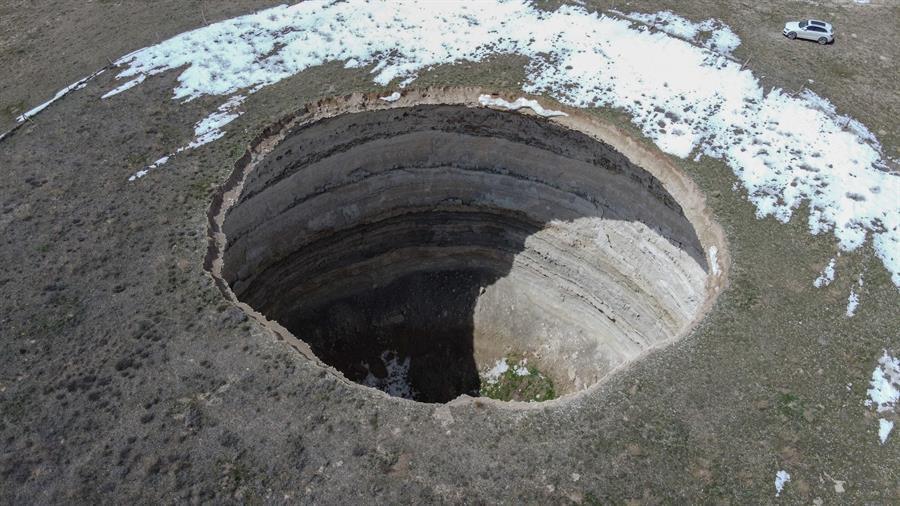
Sinkholes wide enough to swallow a bus dot the drought-stricken breadbasket of the Turkish plains, worrying farmers as they spread and creep closer to residential homes.
“The drought situation is getting worse,” said farmer Tahsin Gündoğdu, whose harvest includes potatoes he sells to the U.S. food giant PepsiCo.
The 57-year-old has seen the huge holes yawn open in the past 10 to 15 years as the overuse of groundwater for irrigation takes its toll.
Dizzyingly deep, they appear when underground caverns created by drought can no longer contain the weight of the layer of soil above. This puts farmers in a bind.
Attempts to get water by other means are more expensive, cutting farmers’ incomes. But continued reliance on groundwater will likely make the problem only worse.
Professor Fetullah Arık has counted around 600 sinkholes in the Konya plain, where he heads the Sinkhole Research Centre at the Konya Technical University, nearly double the 350 counted last year.
‘Worse than COVID-19’
Experts want the government to do more to address extreme drought, blaming the lack of a proper water management policy for Turkey’s woes.
Trying to cut groundwater use, farmers have been forced to water their fields more, leading to higher electricity bills.
“We usually would water the land twice a year but now we’re doing it five or six times,” said Hazım Sezer, a 57-year-old farmer in Karapınar.
But Gündoğdu said some farmers still turn to illegally using groundwater for their crops.
If not addressed, drought will hurt farmers and consumers “as much as, if not worse” than the economic shock of the pandemic, said Baki Remzi Suiçmez, head of Turkey’s Chamber of Agricultural Engineers (ZMO).
“Until last year, we had never seen drought like this,” farmer Kamil Işıklı agreed, adding he was more optimistic for 2021 after rain fell earlier this year.
Murat Akbulut, head of ZMO’s Konya branch, said this could offer a “significant solution” for Konya, whose Beyşehir Lake has seen its water reserves shrink to 123 million tonnes from 450 million tonnes in 2020.
This drop “will lead to real irrigation issues for the plain,” Akbulut said.
Nearly 77 percent of Turkey’s water is consumed by the agricultural sector, Suiçmez said.
Hope for spring rain
Turkey is actually facing two types of drought. The first is meteorological, due to dry weather, and the second is hydrological, which means water levels are low in streams, reservoirs and groundwater levels.
President Recep Tayyip Erdoğan hosted his first water forum last month, promising to “renew and improve the agricultural irrigation systems”.
Suiçmez said a lot depended on the weather in April and May, because “if there isn’t enough rain in those months, in nearly all areas where there is dry farming, the risk of agricultural drought will continue”.
But even abundant spring rain will not make the problem go away, he warned.